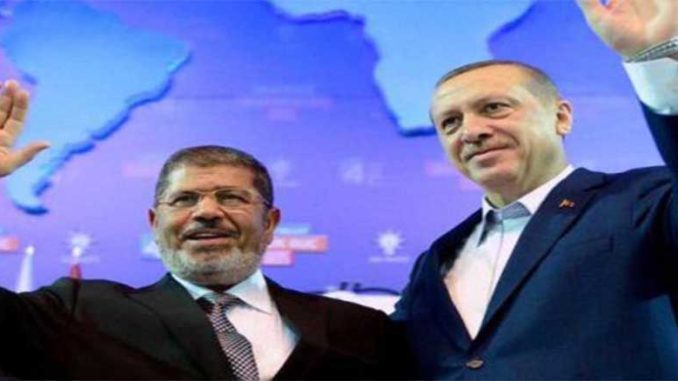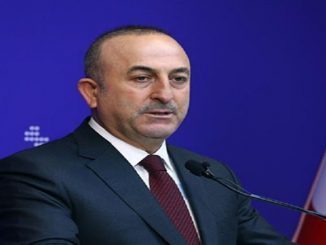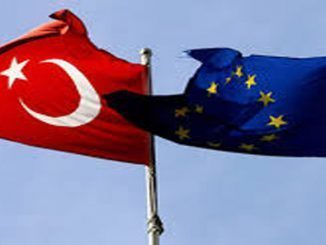
In Turkey, where the nation and state was separated, politics used to be conducted on behalf of the state, not on behalf of the nation. That state was estranged from the nation, and foremost upheld the priorities of other countries and powers. So, the politics approaching people were immediately sidelined in no time through coups, bureaucratic or oligarchic tutelary powers. The mechanism was in a sense simplified under the name of “deep state.” With every turn we take, it presents us with fresh façades, thus, we are able to see that this mechanism is not so simple.
While struggling with this structure, AK Party was also sometimes influenced by it, in some forms of intricate relations, and tried to overcome the effects of that power to the extent that it could grasp and interpret it. We should know that the power facing us is not a simple and unitary power directed from a single point. This power, with its behavioral patterns, is sometimes a lethargic, a power or status positioned, and a level of human relations that we can sometimes produce in ourselves. Recep Tayyip Erdoğan, the leader of the movement, draws attention to this aspect in its 16th anniversary.
In fact, what Turkey has accomplished with the AK Party was an ideal model to overcome the current state of disconnection between state and nation in the whole Islamic world.
The “harmony of Islam and democracy” debate, torturously reiterated in the Western world toward the Muslim world, is an extremely fraudulent debate and enquiry. The only reason for the underdevelopment of democracy in the Islamic world is that Westerners encourage and support anti-democratic, remote and alien- from the public- regimes. So far, Westerners have not supported any developments that open the way for state-nation integration as an alternative to dictatorships.
It is possible to see this role of them everywhere, but one of the latest and striking examples is Egypt. Muhammad Morsi, perhaps the only democratically elected president in Egypt’s history, actually tested the waters for the meeting between Islam and democracy in the Islamic world to Westerners, too. They could not stand this meeting in Egypt even for a year. The failure of the Westerners in this test was tragic in the strict sense of the word.
On July 3, 2013, Muslim democratic leader Morsi was toppled by a brutal military coup on the grounds that Egypt could not solve its millennial problems during his one-year presidency, and that he did not want to share his power with the opposition. The masses that objected to it demonstrated for one-and-a-half months to defend the will of the people, legitimacy, democracy and the values, which can be easily considered to be Western, against the military coup in all the squares of Egypt. However, a total of 3,000 people were tragically killed in these squares on Aug. 14, 2013, the 12th anniversary of the founding of the AK Party, which had actualized nation-state unity and the will of the nation in a successful and model.
Seeing that there was no way other than blood and fear to carry out the military coup, which the majority of the people never endorsed, coupists randomly shot at people who gathered in the squares, ruthlessly killing 3,000 people and ignoring human values.
Despite being subjected to heavy criticism by the West within a year because it did not share power, such a military coup against the most democratic rule ever in the history of Egypt was preferred by furious perpetrators of massacre. The West has not made a noteworthy criticism of the Sisi administration which has conducted a massacre in the beginning. Also, it has not taken a stance and displayed a serious awareness toward the violation of human rights in prisons where 60,000 political prisoners are subjected to all kinds of torture.
Whatever people say, Western people prefer dictatorship, fascism and torture, not democracy and human rights, in Egypt, and the whole Islamic world. With the Rabaa massacre, we actually witnessed the suicide of Western values as well. We saw the West’s same insensitivity during massacre against Turkey’s democracy and the will of the nation on July 15.
Many European countries, especially Germany, are embracing all terrorists who aim to destroy Turkey’s democracy on the grounds that the country is moving away from democracy. FETÖ, PKK, DHKP-C and PYD, whose coup and war crimes have overtly surfaced, are all supported by Germany. Obviously, Europeans directly prefer terror to the democracy that they dislike in Turkey.
The fact that the Rabaa massacre coincided with the anniversary of the founding of the AK Party is a sign, which is profoundly symbolical even if it is not intentional. Happy founding anniversary to the AK Party and may God’s mercy and grace, and our greetings be on those who were martyred, while wanting to experience the same beauty, in the Rabaa massacre.
*Yasin Aktay is a member of the Turkish parliament and a leading figure of the ruling Justice and Development (AK Party) in Turkey. (Published in Yeni Şafak Turkısh newspaper on August 16, 2017)

 BY: Yasin Aktay*
BY: Yasin Aktay*

